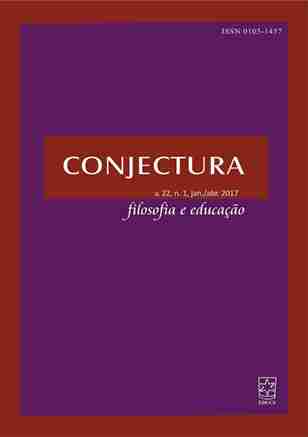The emergence of rationality: a philosophical essay
Abstract
The paper argues that the emergence of the Western question of rationality only can be understood in its dynamic and evolution from the correlation between philosophical/theological/scientifical institution and the strong objectivity, in that such a strong objectivity only can be achieved by a scientifical institutional praxis, something that common sense and common people cannot do. The Platonic model of scientifical institution as centralizing and monopolizing the epistemological-political grounding, imposing it directly on common sense and common people, is based on the idea that the strong epistemological-moral objectivity is the normative condition to the sense at all, to the framing, legitimation and guiding of common sense and common people. So this correlation between scientifical institution and strong objectivity leads to the strong institutionalism regarding the constitution, the legitimation and the social foment of the valid knowledge and of the valid culture, again from the contraposition to common sense and common people. Here, scientifical institution acquires a role of judge and of guide of the social evolution as a whole. The paper’s central argument is that such Platonic linking between scientifical institution and rationality (or epistemological-moral objectivity as a product of scientifical institution) must be deconstructed in favor of common sense and common people, i.e. in favor of the democracy as basis of the epistemological-moral grounding, which means as consequence the institutional weakening and abandonment of that Platonic self-understanding which links scientifical institution and objectivity.Downloads
Pubblicato
2017-01-26
Come citare
Danner, L. F. (2017). The emergence of rationality: a philosophical essay. CONJECTURA: Filosofia E Educação, 22(1), 11–31. Recuperato da https://sou.ucs.br/etc/revistas/index.php/conjectura/article/view/4453
Fascicolo
Sezione
FILOSOFIA - Artigos
Licenza
1. A publicação dos originais implicará a cessão dos direitos autorais à revista Conjectura.
2. Os textos não poderão ser reproduzidos sem autorização da revista depois de aceitos.

Este trabalho está licenciado com uma Licença Creative Commons - Atribuição 4.0 Internacional.









